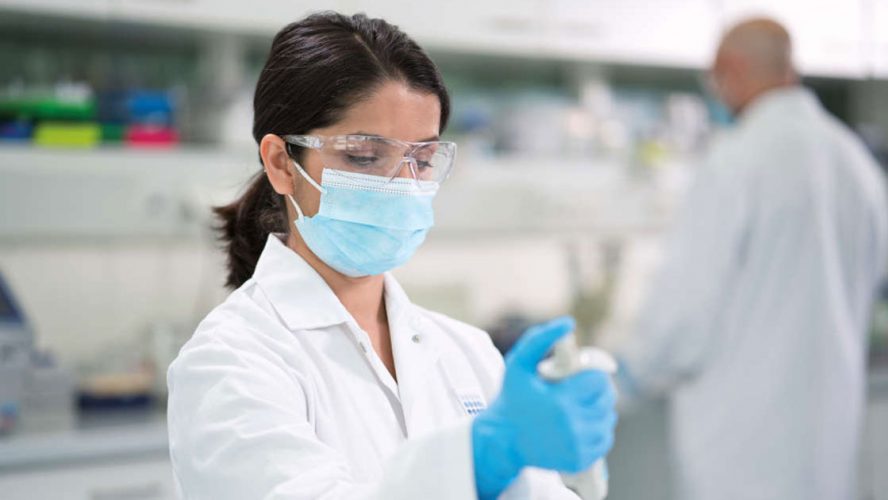Biomarker-guided cancer treatment is not the standard of care in the United States, but one leading molecular testing company is working to change that.
An estimated 2 million Americans will be diagnosed with cancer this year, and cancer remains the second leading cause of death in the United States. Thankfully, cancer treatment can be potentially more targeted and more personalized — if the right testing is performed.
“Cancer is not normal,” explains Ravindra Kolhe, M.D., Ph.D., FCAP, director of the Georgia Esoteric & Molecular Laboratory at the Medical College of Georgia. “There are some genes which go abnormal, driving these cancers.”
Comprehensive genomic profiling
Once a specific gene driving the cancer is identified, it can be treated with a targeted, personalized therapy instead of broader therapies like radiation or chemotherapy. But the most prevalent approach remains single-marker testing, which looks at just one gene’s mutations at a time, making the testing process inefficient — and wasteful.
“As research evolves and more targeted therapies are approved, access to tissue becomes the issue,” explains Lee-Anne Zinetti, associate director of Global Oncology Marketing at QIAGEN, a leading sample and assay technology company. The increasing number of biomarkers coupled with limited tissue poses a challenge for pathology labs. With lung cancer, for example, a biopsy provides a finite amount of tissue, and with ~10 actionable biomarkers associated with FDA-approved drugs and even more in clinical trials, a decision might need to be made: which test and which technology should be used to give the patient access to the best treatment options.”
Another limitation of older methods of cancer testing is that one of the two types of nucleic acids, DNA or RNA, is typically tested. Using next-generation sequencing (NGS) technology, we can identify all mutations across hundreds of genes, and test DNA and RNA simultaneously. “Now we can look at not only the DNA but also the RNA,” notes Dr. Kolhe. “And we can look at multiple facets of these tumor cells in one setting, including biomarkers like TMB and MSI. Now we can have a global picture of what’s wrong with the tumor.”
Challenges
Despite these advantages, single-marker testing remains the standard of care. “The No. 1 barrier to comprehensive genomic testing becoming the standard of care is resources,” says Dr. Kolhe. “Finding the expertise and technical know-how to run a comprehensive genomic profile in smaller laboratories is still a challenge.”
One reason for this is the fact that most insurance companies will only pay for FDA-approved comprehensive genomic testing — and, currently, only a few such tests are available. That forces physicians to send their samples to the labs that can perform those tests — larger service labs — instead of their local labs.
Costs are also a barrier but shouldn’t be. While it’s true that comprehensive genomic profiling is perceived as more expensive (up front), Zinetti notes that this misses the bigger picture. “The cost of putting a patient on a therapy that doesn’t work is much higher for both the patient, who may suffer an adverse event, and for the payor,” she says. “Because you’re potentially giving them an expensive drug and it’s not going to have an impact. So that’s a waste, and that has a negative impact on the healthcare system.”
Zinetti notes this is why QIAGEN supports cancer research and collaborative efforts. It’s also why the company joined the Access to Comprehensive Genomic Profiling (ACGP) coalition, which promotes the adoption of personalized medicine like comprehensive genomic testing. “What’s amazing is, NGS testing is not new,” says Zinetti. “The current guidelines have not evolved with the science or advances in precision medicine. We need to all do our part in changing that as an industry — for the benefit of patients.”
“We’re working with everyone in the field to make this a routine test,” says Dr. Kolhe. “Cancer is a pretty complex disease. Having more informed, comprehensive content to work with will help oncologists and pathologists make better decisions.”
To learn more about next-generation sequencing, visit https://www.qiagen.com/us/applications/next-generation-sequencing/multimodal


